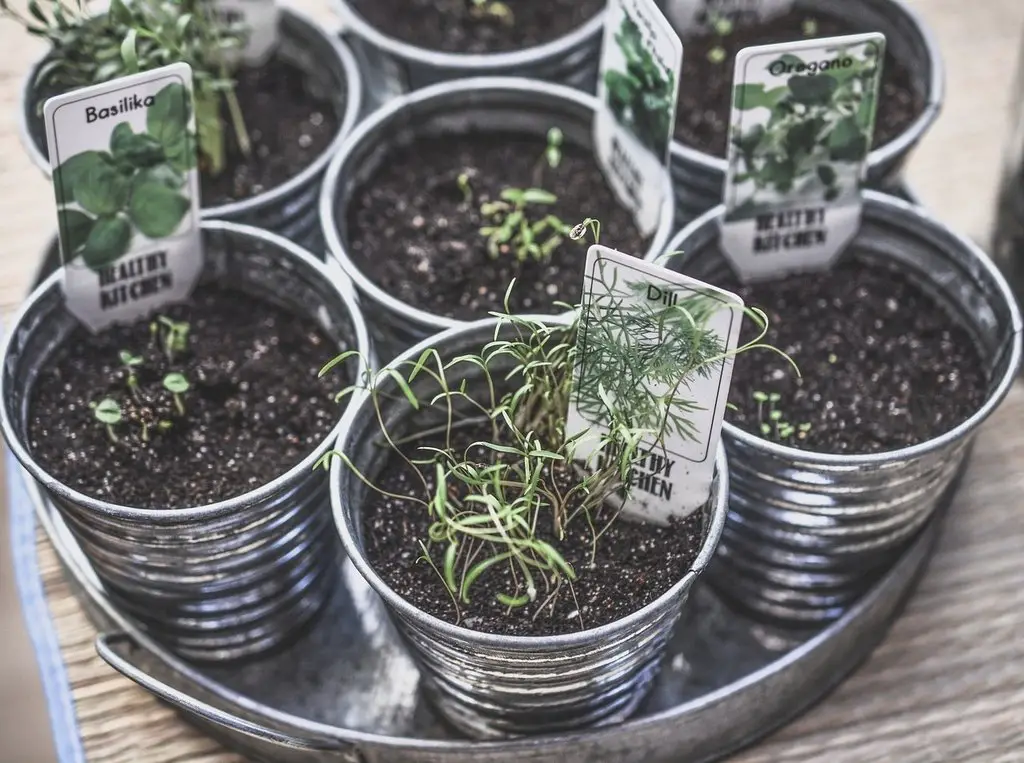Amazing Herbs You Can Grow Indoors Year-Round

Most gardeners are unaware of the fact that there are several herbs that grow naturally year-round in many areas of the world, as well as some herbs that do not require a lot of sunlight at all. You can find out which herbs grow best in your garden by reading this article.
Table of Contents
Basil
Basil is one herb that will do nicely in an indoor garden. Basil is usually grown indoors because it does not require a lot of sun in order to thrive. In fact, many people like to grow basil in large pots that contain a layer of mulch because it does not get much light and has little or no competition for nutrients.
Oregano
Oregano grows quite well too. You might like to plant oregano in a large container in the backyard and cover with good quality mulch. Oregano will survive on mulch and grow in a large pot. You might prefer to plant oregano in a big bowl filled with water to help increase the nutrients.
Mint
Mint needs a little sunshine to grow and you can find it growing easily in small containers or pots. You may prefer to grow mint in a big pot that you put in your living room for a few years before moving it to an indoor area. Like many of the herbs discussed here, mint needs little sun but it does require extra light during the winter months if the weather is extremely cold. in order to survive.
Rosemary
Rosemary grows very well under the right conditions in an indoor garden. It will grow well even if it is not exposed to direct sunlight. If you plant Rosemary in a large pot that you keep filled with water, then you will need to provide light for the plant during the day and a dark covering for the night. The plant will survive in the dark for a few years without the direct light but the plant does need sunlight to continue to grow.
Many of the herbs that you see in the grocery store do not do very well when planted together as a group but they do make a great addition to a small container garden. Just remember to take into consideration which ones you want to grow and use them together.
Garlic
Garlic is another great choice for an indoor garden. Garlic is very good at repelling bugs so you should have no problems with pests. When mixed with other herbs, it can make a delicious soup. Just be sure to keep the mixture away from the root of the garlic plant as the roots can rot.
Frequently Asked Questions
What are the Best Herbs to Grow indoors in Low Light?
The answer to this question is “it depends” and the reason for this is that there are so many herbs that are great for growing indoors in low light environments and some of them will not do well in low light environments. It is important to know what herbs you need to grow indoors in low light environments before you go out and buy any herbs for indoor planting.
The first thing you need to remember is that there are two types of plants that you need to be aware of when you want to grow herbs in a low light environment. The two main types are indoor and outdoor herbs.
An indoor herb is one that needs a regular supply of sunlight to grow properly. If your herb is a low-growing plant, it will need a lot of sunlight and if your herb is a bush it will need even more. Indoor herbs are great because they don’t need much maintenance and will grow quickly if you take care of them. They require less water and will bloom better in a cool-weather environment.
If you are going to be growing herbs in a low light environment, then you will want to use herbs that will grow well in a low light environment. You will want to keep in mind the requirements of the herbs you want to grow before you buy them, but most herbs will grow well in low light environments. Some herbs are more suited for this type of situation than others.
Evergreen Basil
One of the best herbs to grow indoors in low light environments is the evergreen basil. This herb is very good for the kitchen and it will help to balance out the flavor in the dishes you make. They will also be very tasty and can be prepared quickly in the oven to add to your meals.
Borage
Another herb to grow indoors in a low light environment is the borage. This herb looks like evergreen borage and has a similar taste. It does not taste as good as the borage but it is still a delicious herb that is worth trying out. It does not have a bitter taste like the borage.
Borage is very easy to grow indoors in a low light environment. There are a variety of methods that can be used to get borage to grow easily indoors and it can be moved from room to room as the need be. Some of the methods include placing the borage inside a plastic bag with some water and leaving it out in the sun for an extended period of time. This will cause the roots to form and the roots are actually feeding on the water.
Borage will grow slowly in low light environments, so you might want to grow a batch of borage that you can freeze the rest for later use. This way you can use the leftover seeds that you freeze and store in the freezer for use in your next herb planting. The best part about storage is that it will grow fast if kept cold and is very forgiving.
If you love the flavor of the evergreen herb, then you should grow it indoors in a low light environment. There are several other herbs that are suitable for growing indoors in this light condition. Some of these herbs include mint, spearmint, and thyme.
Growing all these herbs will help you enjoy all the flavors in the herbs you are growing. It will give you many years of enjoyment as well as the satisfaction of having a product that is completely fresh. When you are trying to grow herbs in a home, there are many choices available.
Each family will have their own preferences when it comes to growing different herbs and some people will grow more than others, so you will need to do a little research in order to know which one is best for your needs. If you are not sure which herbs to grow, then try checking out some online reviews and see which ones are the best for growing in low light environments.
Best herbs to grow indoors in small pots?
One of the biggest challenges of home gardeners is trying to decide which plants are the best herbs to grow indoors in small pots. While many herbs are considered fine choices for growing in small containers, there are some that are better suited for larger growing areas, such as window boxes.
Some of the best herbs to grow in a small container include oregano, basil, chives, garlic, and thyme. While each of these herbs has its own special attributes, all are able to thrive indoors, provided the soil in their containers is rich in nutrients and water. For example, oregano loves plenty of light and water, while chives and garlic love a richer soil with fertilizer and regular watering.
Many of these herbs can be started from seed and are inexpensive to purchase or grow yourself. It is also possible to grow the herbs in their full-grown form in a pot. This way, you get the benefit of the herbs’ natural flavor, aroma, and color. Some of these herbs are also easier to handle, making them ideal for growing in a small container, such as in a corner of your living room.
If you cannot find the right seeds to start your plants from, then you can always purchase them at the store or online. Just remember to check the seeds’ instructions carefully, as not all herbs will grow well in containers. Also, keep in mind that while some herbs may do well in small containers, others require more space.
Herbs do best in large spaces, so if your yard is too small, consider growing herbs in a window box instead. Smaller containers allow for more room inside your house, so they are better options for growing herbs. If you have a lot of open space outside of your house, then you may consider a large, fully-grown container.
If you live somewhere with high humidity, then the best herbs to grow indoors in small pots would be cilantro and basil, as they are prone to mildew. However, some herbs are even tolerant and do well in high humidity.
Herbs can add charm and beauty to any room. Whether you are a novice gardener or an expert, you can easily grow and maintain an abundance of herbs in small containers with regular maintenance.
Herbs do not require a lot of care. They do not need to be watered or fertilized unless you want to help them out. However, some herbs are very sensitive to poor water conditions, so it would be best to read the instructions on the package to determine what kind of environment your herbs prefer.
Herbs are easy to take care of, and can be a wonderful addition to your kitchen. If you follow the proper steps, you can grow herbs in small containers and reap the rewards of their flavors and colors. A well-kept, healthy garden will give you years of enjoyment.
Conclusion
Just remember that basil is a very aromatic plant that will add flavor to any dish you are cooking. you will enjoy using basil in the kitchen as well as in cooking up some delicious soups.









